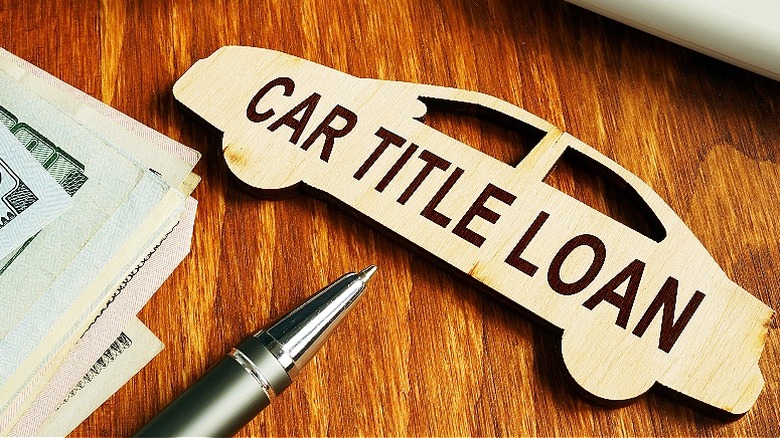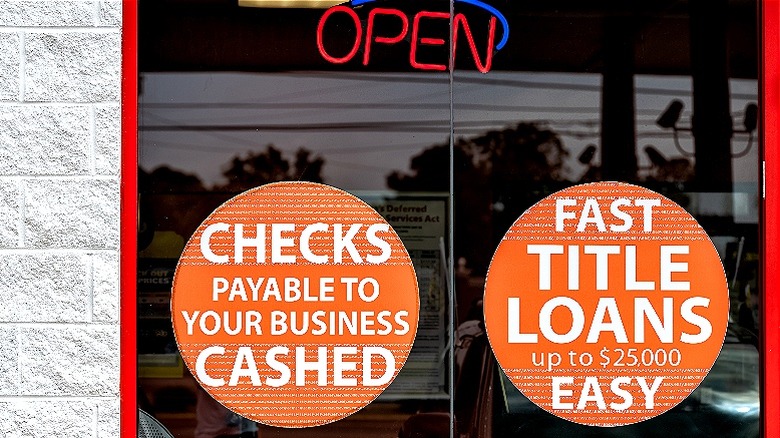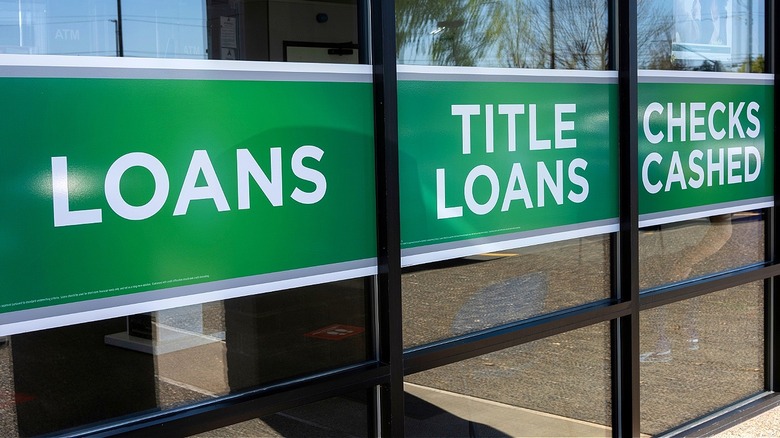What Is A Title Loan? (And Why They're So Risky)
More people are borrowing more money than ever. As of the end of the second quarter of 2024, Americans owed a whopping $246 billion in personal loan debt, according to LendingTree. Not only was this a $1 billion jump compared to the end of the first quarter of 2024, but it was also a 6% jump over the same time in 2023. To put that in perspective, 23.9 million Americans had a personal loan in 2024 compared to 14.4 million people in 2015. However, with these numbers in mind, personal loan debt still only comprised 1.4% of all consumer debt in 2024.
This said, how exactly people are borrowing this money can, and does, have far-reaching financial consequences. For starters, there are a lot of different loan options to consider when in need of some extra money. And everything from the length of the loan to the total amount needed to your current credit score should be factored into your decision.
While loans can be incredibly useful ways to get back on your feet financially, there are also many ways they can cause additional financial stress if handled improperly (plus, we recommend avoiding payday loans altogether). This is why it is so important to consider all loan options before moving forward with any. One particular loan type you might have seen (and/or even considered yourself) is an auto title loan. Let's break down this loan type and why it might not be the best financial choice for you.
What is a title loan?
A title loan allows a consumer to trade their "pink slip" or car title to a lender in exchange for a percentage value of the car in question. The car's title serves as collateral should the borrower be unable to pay back the loan amount. Generally speaking, borrowers can get 25% to 50% of their car's value in cash by using a title loan. However, it's important to keep in mind that car title loans are only legal in 25 states, with 12 states offering them with restrictions. This is largely due to the dangerous nature of this loan type. With short loan terms, as well as repayment periods beginning just 15 or 30 days after borrowing, it can be easy for consumers to end up losing their cars in these arrangements. (It's also one of the types of loans we believe will keep you poor long term.)
Another important caveat to using this loan type is that you must own your car outright (that is, not financing the car) in order to have the car title in the first place. While some lenders might offer title loans for those who still owe a small amount, it is uncommon. Another consideration is how steep the interest rates can be on a title loan. While certain states have set caps on the interest rates a lender can charge you (anywhere from 2% to 36%), other states have no such regulation, meaning consumers could face financially steep repayment options. This increases the likelihood that you could end up losing your car.
Why people use title loans
With prices up (according to an October 2024 Bankrate analysis of Bureau of Labor Statistics data, 21.4% since February 2020), it's easy to understand why so many U.S. households are financially struggling. This hasn't only led to an increase in personal loans, but, specifically title loans. In fact, a Consumer Financial Protection Bureau report found that 3.7% of consumers took out title loans in 2023, with an increasing upward overall trend of consumers using them since 2019.
One major reason for the growing popularity of title loans is the lack of a required credit check. Since most of the borrowers utilizing title loans tend to have poor credit, they're usually unable to secure other kinds of financing. This leaves many without a better option for securing fast cash.
The immediacy of the cash involved in this type of loan is another reason why they can seem appealing. Since borrowers with poor credit might not have much in terms of property and assets, their car might be the only item they have valued highly enough to be used as collateral. Being able to receive same-day funds for something they already own can feel like a lifeline for those who are financially struggling, regardless of how problematic the loan terms might be. Also, if the borrower ends up being unable to pay back the loan, title loans won't further damage their credit as the lender simply takes the collateral (their car) to make up the difference. While certainly not ideal, that can feel safer for those with already low credit compared to other loan types.


